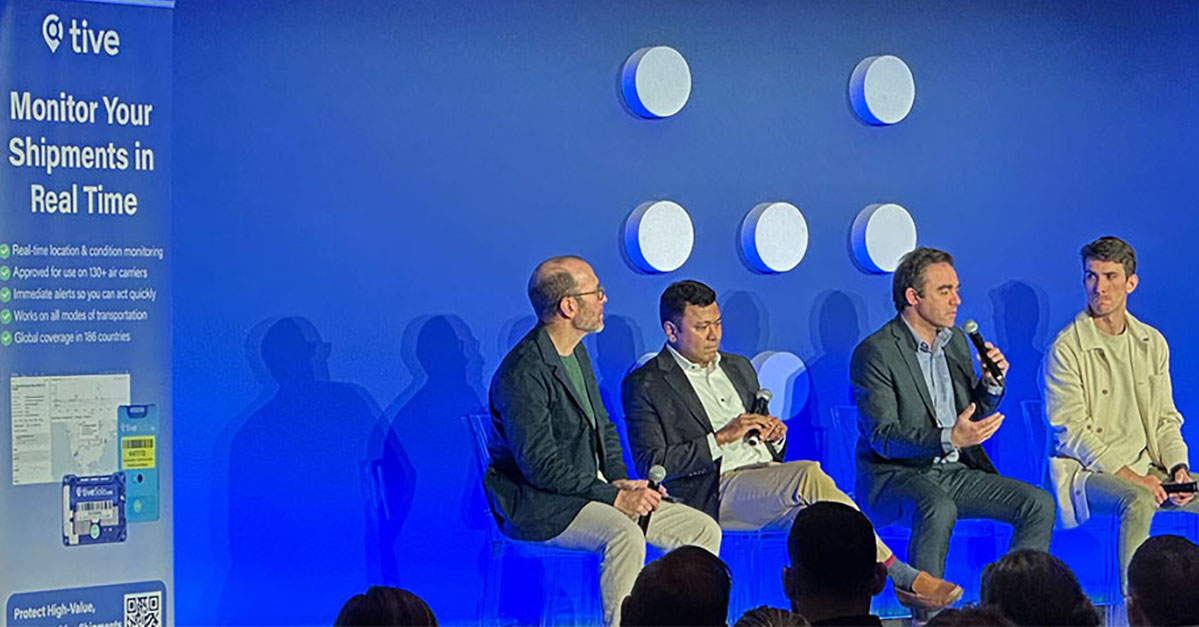Track, Trace & Triumph: Mastering Regulatory Compliance in Modern Logistics

December 19, 2023
July 8, 2025
x min read

Imagine you're exploring a complex jungle… in the middle of the rainforest… in the dead of night. Now wake up to your reality as a shipper, and you’ll notice that the Amazon jungle of international trade laws and environmental standards feels kind of the same way. It’s vast, and complicated. Every turn presents a new challenge, and every decision matters. In this world, a single misstep can lead to delays, fines, or even damaged goods. It’s an unforgiving terrain where precision and up-to-date information are nonnegotiable.
That’s precisely where track and trace technology steps in. Track and trace technology goes beyond mere tracking; it's like having a trusted copilot in the logistics world. With real-time updates, track and trace ensures that every shipment sticks to the strictest standards—and steers clear of delays and penalties. But these advantages go much further than simply knowing the location of your goods; it’s about smoothly navigating the complexities of global trade with confidence and compliance. After reading this article, you’ll see how.
Understanding Regulatory Compliance in Logistics
Mastering logistics and shipping goes beyond simply understanding transportation; it's about closely adhering to a complex set of regulations and compliance requirements for global operations. And while this, of course, involves understanding and following international trade laws and environmental regulations, the real challenge lies in careful adherence to the precise standards that rule over the transportation of goods. From ensuring that you meet global trade norms in cross-border shipments to minimizing shipping's environmental impact, it's all about striking the right balance to ensure legal compliance and responsible delivery.
Specialized Compliance Areas
- Pharmaceuticals – Good Distribution Practice (GDP): GDP guidelines ensure that pharmaceuticals are stored, transported, and handled under specific, suitable conditions.
- Pharmaceuticals – Drug Supply Chain Security Act (DSCSA): This act mandates the use of tracking systems to enhance the security of the pharmaceutical supply chain.
- Food Safety – Food Safety Modernization Act (FSMA): FSMA focuses on preventing contamination during the transport process of perishables.
- Data Protection – General Data Protection Regulation (GDPR): In Europe, GDPR and similar regulations enforce stringent data protection in logistics, particularly when handling customer information.
Customs & Trade Agreements
- Customs regulations: These laws dictate import/export protocols—including declarations and applicable taxes—ensuring that shipments meet country-specific requirements.
- Trade agreements: Agreements such as NAFTA or EU policies set forth rules for cross-border shipments within their respective zones.
- Export control laws: These laws regulate the export of sensitive goods and technology for national security and trade protection, requiring careful tracking to prevent illegal distribution.
The Role of Track & Trace Technologies
Track and trace technologies—including GPS, RFID, and IoT sensors—are revolutionizing global logistics. Their role goes beyond merely locating shipments; they are essential to ensure compliance with international trade laws and regulations. Doing so guarantees safety, quality, and adherence to legal standards in numerous ways.
Regulatory Adherence
Track and trace technologies form the backbone of our global logistics network, functioning as a behind-the-scenes GPS for everything from life-saving vaccines to fresh produce. Imagine a world in which each shipment—whether a critical pharmaceutical or your favorite TV snack—narrates its digital journey across borders. It's not just about tracking locations; it's about ensuring that every item complies with all required trade laws and customs regulations. Consider the voyage of pharmaceuticals such as Pfizer’s COVID-19 vaccine, which must remain between -130° to -76°F during transit. Track and trace technologies serve as vigilant guardians, ensuring strict adherence to standards such as GDP.
Quality Assurance
Imagine your favorite chocolate bar melting in a hot delivery truck or an asthma inhaler losing effectiveness due to cold. These scenarios highlight the critical need for proper temperature, humidity, and light monitoring during shipping. This importance is especially true for perishable goods, life sciences products, and sensitive electronics, for which maintaining the right environment is the bedrock of safety and quality. Consider the profound impact on food and pharmaceuticals: The International Air Transport Association (IATA) reports that 25% of vaccines lose effectiveness due to incorrect shipping, and approximately 5 to 20% of temperature-sensitive vaccine shipments deteriorate during transportation. Food wastage in the U.S. reaches a staggering 400 pounds per person annually, costing about $218 billion. At the same time, foodborne illnesses afflict 48 million people yearly in the U.S.
Safety & Security
Regarding shipping hazardous materials, the stakes are incredibly high—and tracking technology plays a vital role. In 2022 alone, 23,178 highway hazmat incidents occurred, causing $21.3 million in damages. Moreover, the Coalition to Prevent Chemical Disasters recorded 188 incidents, and in just the first seven weeks of 2023, over 30 incidents were noted. Thus the importance of real-time tracking technology becomes even more evident, considering that only 37% of companies effectively monitor their hazardous shipments as they happen—despite about 84% of incidents with these materials occurring during transportation.
Transparency & Accountability
Real-time tracking goes far beyond being just a tech feature; it's foundational for building customer trust and ensuring transparency. This technology streams continuous data regarding the location, condition, and environment of shipments—offering both businesses and customers a transparent view into a product's journey. It also builds customer confidence by actively demonstrating careful and precise handling of goods. Furthermore, the detailed records generated are crucial for audit purposes and compliance with regulatory standards, making it easy for businesses to demonstrate that they're playing by the rules.
Risk Management
Imagine a logistics world that functions as precisely as a Swiss watch. Real-time tracking brings us closer to this ideal, shaping a landscape in which swift, proactive responses to delays, environmental shifts, or unexpected changes in routes are commonplace. Besides tracking the progress of shipments, this level of monitoring ensures adherence to strict regulations and manages risk in the process—including providing essential records for insurance claims and liability decisions.
Data-Driven Decision Making
Predictive analytics and tracking data analysis are reshaping supply chain management. Roughly 39% of companies now use these tools for demand forecasting—effectively reducing inventory levels by 20-30%. Maintenance, asset management, and customer interaction transparency also benefit, with 35% of companies employing analytics in these areas. Supply planning and pricing optimization are similarly impacted, utilized by 32% and 31% of companies, respectively. However, beyond mere number-crunching, the integration of IoT and AI enables businesses to proactively navigate demand shifts and disruptions, optimize routes, and elevate customer satisfaction with precise ETAs.
The Future of Shipping: Enhanced with Tive's Track & Trace Innovations
Track and trace technologies transform logistics into a high-stakes game of precision and compliance. These tools are vital in global shipping—ensuring that products ranging from life-saving drugs to your morning coffee adhere to complex international regulations. These aren’t simply tracking devices: they’re guardians of quality and safety in a world where every shipment counts.
Leading this charge is Tive, a company redefining logistics with cutting-edge technology. Tive’s track and trace technologies offer advanced logistics solutions, from the Solo 5G tracker to the paper-thin Tive Tag temperature logger. The Solo 5G tracker—available in Lithium and Non-Lithium models—is a versatile device that monitors real-time location, temperature, condition, shock, and light—ensuring precise shipment tracking. Tive Tag is an efficient temperature logging label that easily syncs data for comprehensive tracking. Both solutions embody Tive's commitment to efficient, precise logistics management—and the true power of track and trace technologies.
Ready to take your logistics operations to the next level with these state-of-the-art technologies? Get started with Tive, and embrace the future of logistics with confidence.


